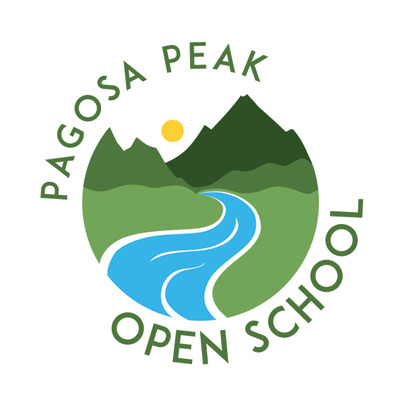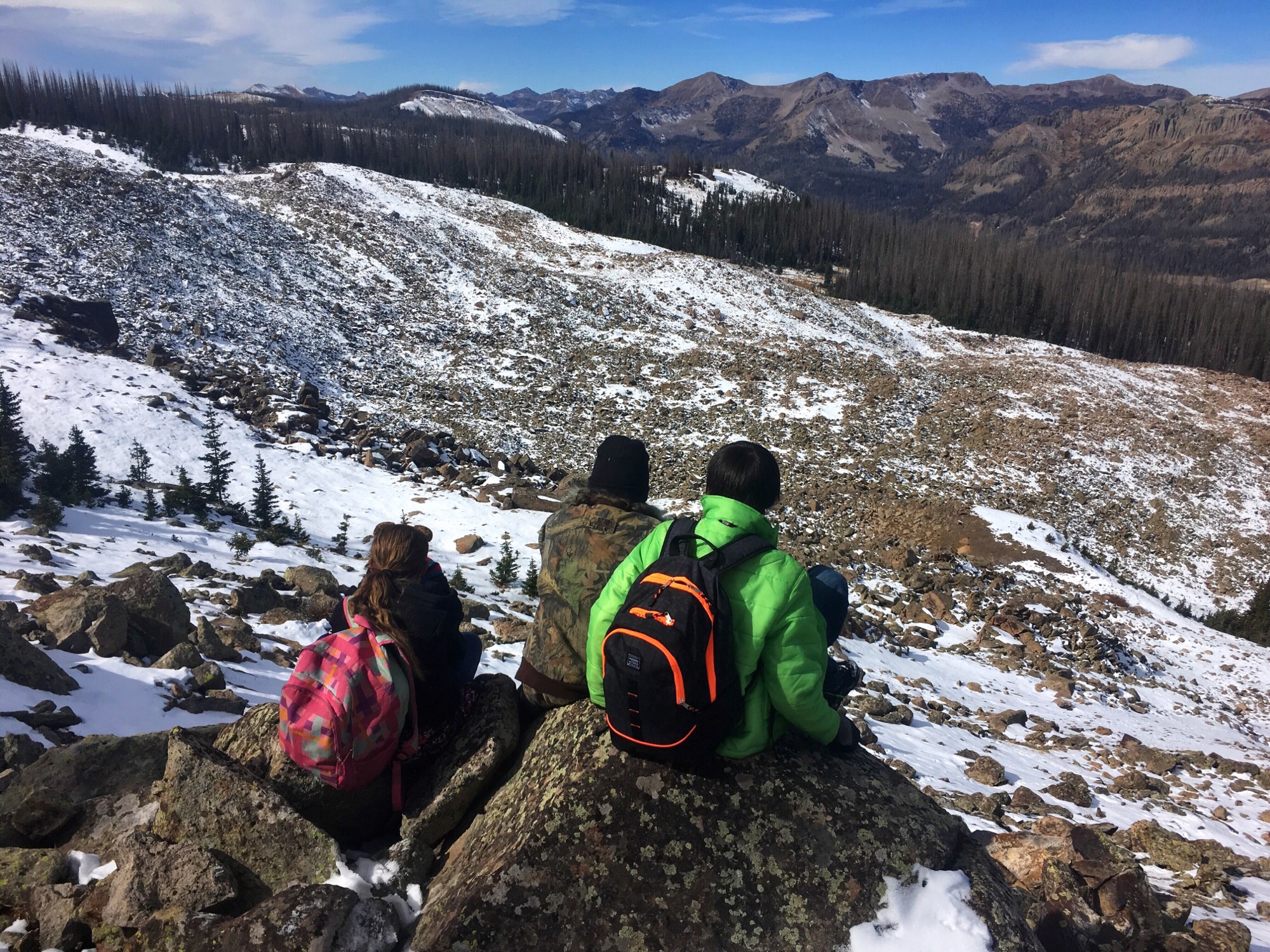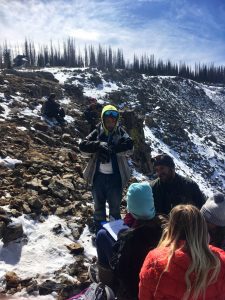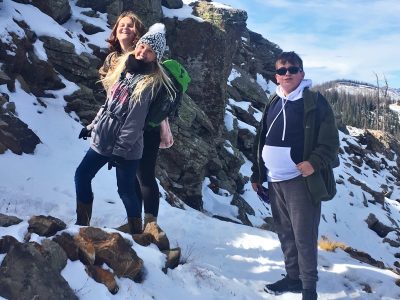On Wednesday, October 23rd, 13 6th graders from Pagosa Peak Open School (PPOS), set out on a 1-mile uphill climb through early winter snow along the Continental Divide Trail with their teacher, Kelsey Wright, and Rockies’ Community Naturalist, Keith Bruno, to initiate a long-term monitoring plot for the American Pika (Ochotona princeps). A little-known creature of the Rocky Mountain high country, the pika has been tagged as a sensitive species to the onset threat of a warming climate. This member of the order Lagomorpha (includes hares and rabbits) relies on the cooling shade of large rocks found among alpine talus fields to temperature regulate their denning areas. They feed on the young stems of grasses and flowers found nearby to their territories. They do not hibernate, and thus spend the majority of the warmer months gathering foods to cache in “haypiles” to provide winter forage.
Mountain Studies Institute, a non-profit mountain research engine located in both Silverton and Durango, CO, has worked as a regional contributor to Rocky Mountain Wild, the lead organization on the pika monitoring project, to offer a citizen science reporting portal for the San Juan Mountains. Citsci.org allows folks to “adopt” a site and make observations, confirming occupancy of pika in public lands locations. The information obtained by project participants, including weather measurements, terrain characterization, and photos of surroundings, provide project partners with the necessary information to determine how populations fluctuate over time and general phenological data for alpine environments.
After a 30 minute period of focused observation for visual and auditory detections of pika, the students set about noting GPS coordinates and weather, taking measurements of boulders onsite, looking for sign of new and old haypiles, and identifying other animal species nearby. These students will upload their data online and continue to manage the pika plot for future years.
To get involved in the project, visit http://www.
– by Keith Bruno



